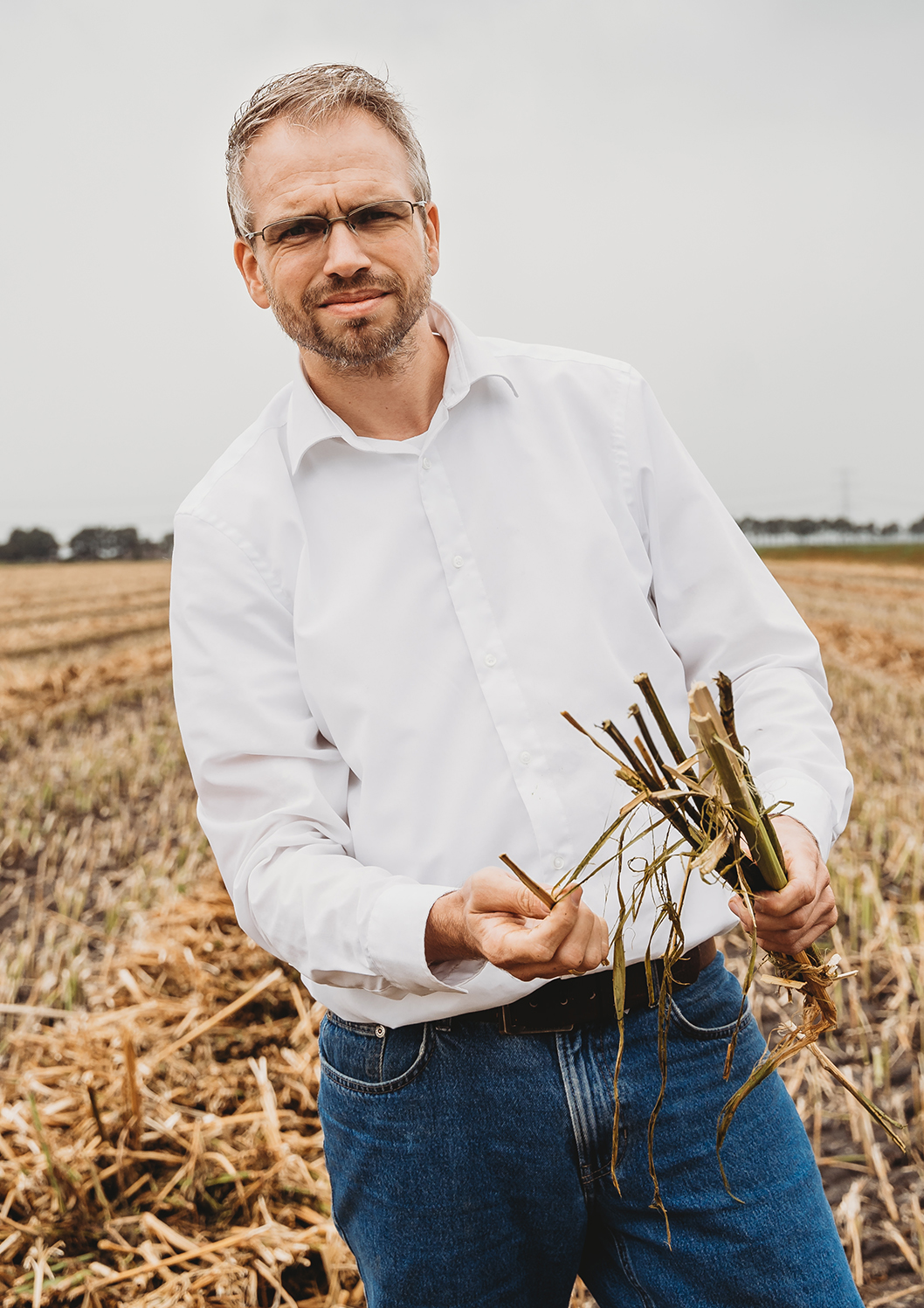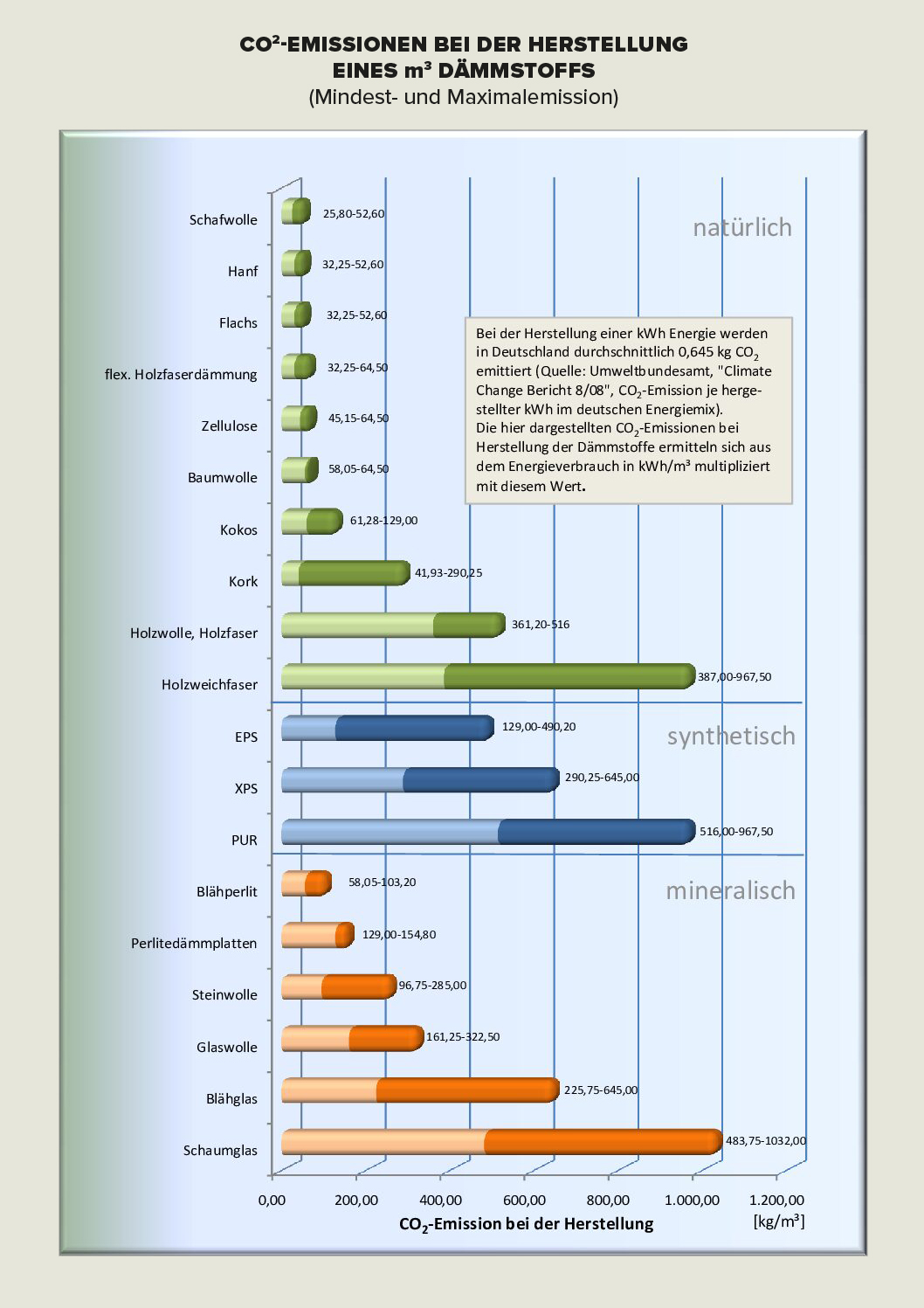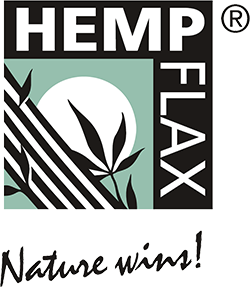Thermo Hanf®
Combi Jute Insulation Mats
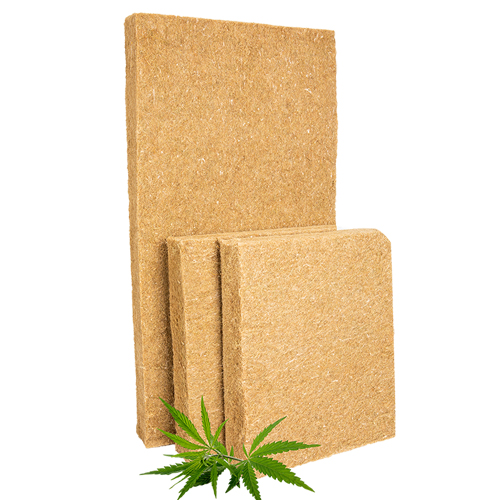
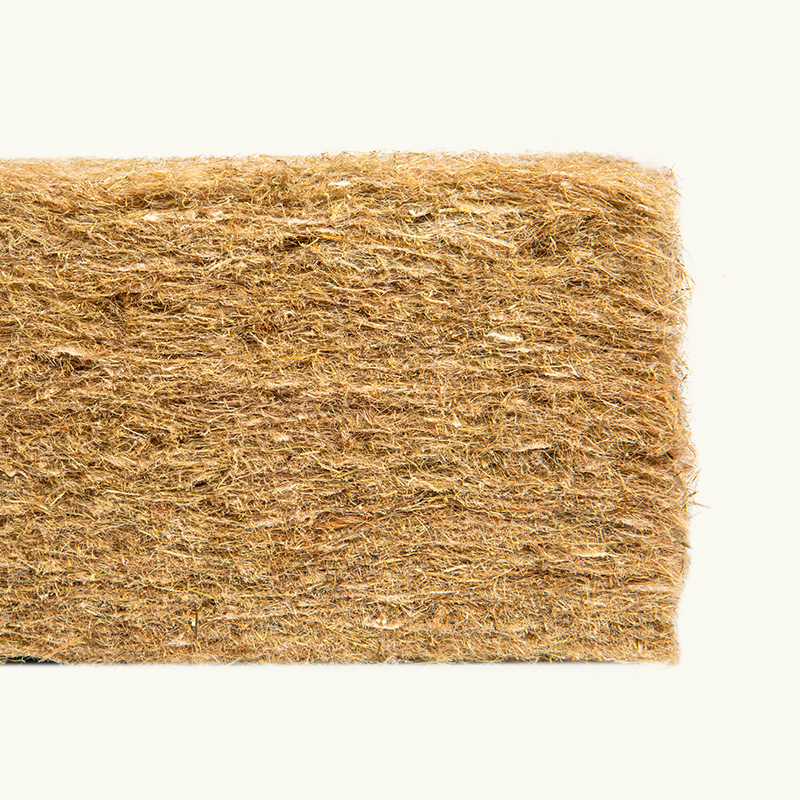
✔ Healthy living: free from pollutants
✔ No mould growth
✔ Excellent heat protection in summer
✔ Good soundproofing properties
✔ Very good cold protection
✔ Removes CO2 long term from the atmosphere
✔ Fire protection with soda
✔ Extremely durable
Our flexible THERMO HEMP® COMBI JUTE insulation mats combine the highest quality fibres from annual, renewable raw materials with optimum green fire protection. By adding recycled support fibres, THERMO HEMP® COMBI JUTE becomes a versatile building material that goes beyond the required European standards. High-quality hemp fibres from Germany, grown in a resource-friendly way, are processed using state-of-the-art technology. Jute fibres from upcycled cocoa and coffee bags and stabilising support fibres from recycled PET fibres are added.
Our hemp insulation mats are safe to work with and can be processed and installed without the need for protective clothing or masks.
ALL THE FACTS
Contents:
- 58% hemp fibres, 29% recycled jute fibres
- 9% polymer supporting fibre based on PET
- 4% soda as fire protection
Nominal thermal conductivity:
- Details in the datasheet
Fire resistance (test according to EN ISO 11925-2:2010):
- Class E (in accordance with EN13501-1:2007)
Disposal:
- Waste code (EAK) 170604
Application/sizes:
- Timber construction size 1.2m * 58cm, in timber stud construction.
- Dry construction format 1.2m * 62.5cm for metal stud walls.
- Large format 1.2m * 84cm insulation between rafters and ceiling joists, very little waste.
All details can be found in the technical data sheet.
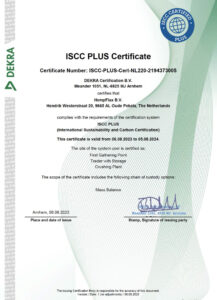
Our raw material is ISCC Plus certificated
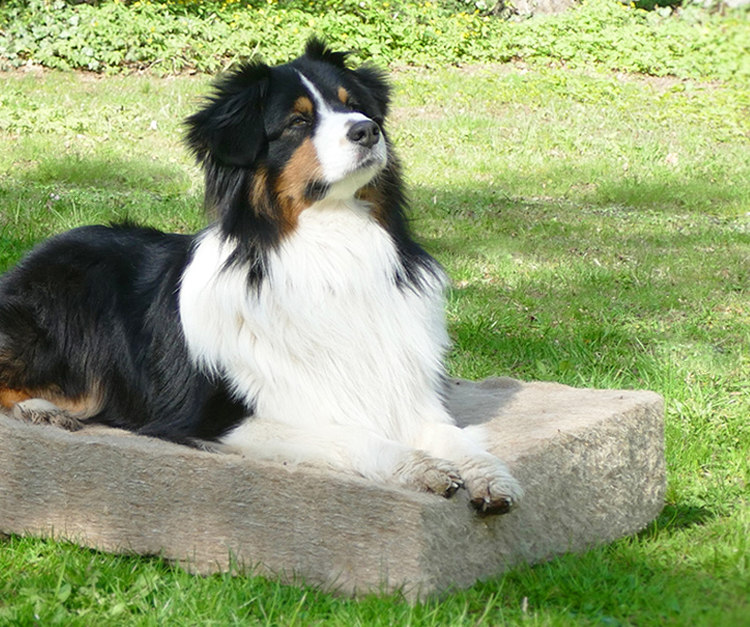
HEMP – A MULTITASKER FOR AGES
Hemp fibres are exceptionally robust and can be used in a wide range of applications. For millennia, humans have used these fibres. Today, the demand for hemp fibres is rising again, as they are an eco-friendly and sustainable alternative to synthetic fibres in many applications.
A PLANT THAT NEEDS LITTLE AND GIVES A LOT
The company HempFlax grows about 2,000 hectares of hemp in the Netherlands, Germany and Romania. The fibres from 1 hectare are sufficient to produce up to 90m³ of hemp insulation material. In comparison, 1 hectare of average forest provides only enough material for 20-70m³ of wood fibre insulation. A 1-hectare hemp field removes annually approx. 14.5t CO2 from the atmosphere, while the same area of average forest can remove only 10-11t CO2 per year.
Industrial hemp plants grow up to 3 metres high in about 100 days and their roots reach almost as deep into the soil. This allows the hemp plant to reach nutrients that are inaccessible to many other plants, meaning there is no need for additional artificial fertilisers. No chemical pesticides are necessary, as the hemp plant grows faster than weeds. In addition, the hemp plant is of no interest to pests, as it does not contain any nutrients that can be used by them. Hemp plants are also extremely resistant to fungi and rot.
Source forests: BaySF – Bavarian State Forests
FOOD FOR INSECTS. NO DEFORESTATION NEEDED FOR CULTIVATION
Another advantage of hemp plants is that their flowers are attractive to bees. Combined with the fact that no chemical pesticides are used, hemp fields provide a safe source of food for our little industrious helpers, without which fruit, vegetable and grain cultivation would be practically impossible.
No forests or other nature conservation areas are endangered for the cultivation of HempFlax industrial hemp; this is confirmed by our ISCC plus certificate.
By growing our own hemp, we can ensure that each harvest replaces the fibres that we previously used, ensuring that we work hand in hand with nature in a sympathetic way – our company slogan is, after all, Nature Wins!
JUTE AS AN ADDITIVE
Like hemp fibres, jute fibres belong to the category of bast fibres. Jute is obtained from the Corchorus plant, which is also an annually regrowing plant. Jute fibre is the second most frequently used natural fibre in the world after cotton and is used for packaging (transport bags), special papers, carpets and even clothing. Transport bags made from jute have traditionally been discarded to landfill due to their classification as food packaging, which is subject to strict regulations. However, Thermo Hemp has pioneered a way of upcycling these bags so that the ultra-fine jute fibres (less than 1/10 the diameter of a typical hemp one) can be unravelled and blended with our hemp to further improve the performance of our insulation products
SUPPORT FIBRES
To produce flexible insulation mats, so-called support fibres are added to the natural fibres. This takes place for two reasons: these support fibres ensure that the fibres adhere to each other and achieve dimensional stability, and they also ensure that the mats remain flexible and spring back to their original form after being compressed.
The support fibres we use are bi-component fibres. What makes these fibres special is that the core has a higher melting point than the sheath. During the thermo-bonding process, the sheaths of the support fibres are fused with the natural fibres, while the core remains solid.
Polyester fibres based on PET are used to manufacture our products. These are made from 100% recycled materials, which is in line with our philosophy of not using finite resources to make our products.
SODA AS FIRE PROTECTION
Soda salt, also known as sodium carbonate, is added to THERMO HANF insulation materials as a fire protection agent. Soda is a completely harmless fire protection agent from a green construction point of view, and it is even permitted in organic food as additive E-500 with no upper limit.
Heterogeneous inhibition (also called anticatalytic effect) means that the radicals of the combustion reaction are bound on the surface of the finely ground powder granules and rendered harmless, thereby extinguishing the fire. At the same time, water vapour is released, since soda always absorbs water at temperatures below 32.5° C, becoming decahydrate in our insulation materials. At temperatures between 32.5° C and 107° C the water molecules are released again.
Thanks to this additive, all HempFlax® insulation materials achieve construction class E (normal flammability). A further advantage is that soda salt has a PH value of approx. 12, thus giving the hemp fibres, which are already very mould-resistant, mould resistance class 0 (top grade).


